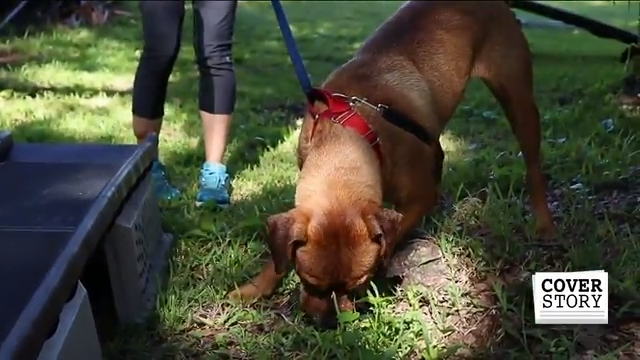

LEE COUNTY, Fla. — Last month, President Biden signed into law the Puppies Assisting Wounded Servicemembers for Veterans Therapy Act, which could be encouraging news for veterans suffering from post-traumatic stress disorder (PTSD).
The act will require the Department of Veterans Affairs to establish a five-year program to provide service dogs and training to veterans with PTSD.
A veteran herself, Dr. Brigitte Belanger from FGCU is a big supporter of using dogs to help veterans.
“Dogs are non-judgmental and so when people are with dogs they feel like they can let their guard down,” Dr. Belanger said.
However, she said it’s likely not going to be as simple as just matching a dog with a veteran.
“If you look at the VA system right now they’re struggling to provide mental health to individuals. Now all of a sudden you’re going to tell them they’re going to have to provide not only mental health but a dog…I mean they don’t have that ability,” Dr. Belanger said.
Another big aspect of this program is having enough service dogs trained and ready to go, which is a process that takes a lot more time than many people expect.
“It takes years to get the dog trained to the point where you can first get on the superior level of obedience that they need to manage all those new environments in public,” said Mary Frances Morris, an independent contractor working at the Alva Refuge Center.
For more than two decades, Frances Morris has worked to identify and train dogs to become service animals. She said one thing she always takes into consideration when selecting a service animal is the animal’s age.
“I would want a little more of an adult dog because when they’re younger you still have all that puppy nonsense that they have in all those developmental stages and it’s a lot for somebody to handle,” said Frances Morris.
But age isn’t the only factor — personality plays a role as well.
“You have to train them for specific tasks and before all of that you have to get the right core personality,” Frances Morris said.
The process is extremely involved because matching someone with the wrong dog could create a long list of problems.
“We have to find the individual and what’s going on with them and what do they need that would help them and can we train that dog to do it,” Frances Morris said.